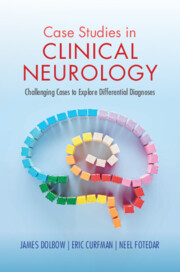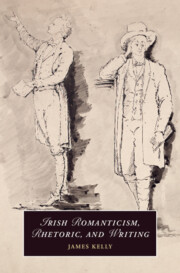Refine listing
Actions for selected content:
1299800 results in Books

Gender and the Global Climate Crisis
- Women's Voices, Representation and Activism in the Middle East and North Africa
- Coming soon
-
- Expected online publication date:
- June 2026
- Print publication:
- 30 June 2026
-
- Book
- Export citation
Revolutionary Shi'i Modernism in Iraq
- The Thought and Legacy of Muhammad Baqir al-Sadr
- Coming soon
-
- Expected online publication date:
- June 2026
- Print publication:
- 30 June 2026
-
- Book
- Export citation

Philosophy of Mathematics after Wittgenstein
- Coming soon
-
- Expected online publication date:
- June 2026
- Print publication:
- 30 June 2026
-
- Book
- Export citation
Critical Review for the MRCPsych
- Coming soon
-
- Expected online publication date:
- June 2026
- Print publication:
- 30 June 2026
-
- Book
- Export citation
All of Regression
- Coming soon
-
- Expected online publication date:
- June 2026
- Print publication:
- 30 June 2026
-
- Book
- Export citation

Daisy Miller and Other Tales, 1874–1879
- Coming soon
-
- Expected online publication date:
- June 2026
- Print publication:
- 30 June 2026
-
- Book
- Export citation

Causal Processes and their Warrant
- Coming soon
-
- Expected online publication date:
- June 2026
- Print publication:
- 30 June 2026
-
- Book
- Export citation
Crossroads After Communism
- Neoliberal Legacies in Eastern Europe and Parallel Paths in Latin America
- Coming soon
-
- Expected online publication date:
- June 2026
- Print publication:
- 30 June 2026
-
- Book
- Export citation
Powers of Judgment
- Hannah Arendt's Moral and Legal Philosophy
- Coming soon
-
- Expected online publication date:
- June 2026
- Print publication:
- 30 June 2026
-
- Book
- Export citation
The Cambridge Handbook of the League of Nations and International Law
- Coming soon
-
- Expected online publication date:
- June 2026
- Print publication:
- 31 May 2026
-
- Book
- Export citation
Divine Hiddenness
- God the Creator and Phenomenology
- Coming soon
-
- Expected online publication date:
- June 2026
- Print publication:
- 31 May 2026
-
- Book
- Export citation

Case Studies in Clinical Neurology
- Challenging Cases to Explore Differential Diagnoses
- Coming soon
-
- Expected online publication date:
- June 2026
- Print publication:
- 30 June 2026
-
- Book
- Export citation

Irish Romanticism, Rhetoric, and Writing
- Coming soon
-
- Expected online publication date:
- June 2026
- Print publication:
- 30 June 2026
-
- Book
- Export citation
Dynamic Universities
- How Strategic, Entrepreneurial Leaders Can Strengthen Higher Education
- Coming soon
-
- Expected online publication date:
- May 2026
- Print publication:
- 31 May 2026
-
- Book
- Export citation
An Anticolonial Development
- Race, Schooling, and Emancipation in Twentieth-Century West Africa
- Coming soon
-
- Expected online publication date:
- May 2026
- Print publication:
- 31 May 2026
-
- Book
- Export citation
The Physics of Interstellar Travel
- Coming soon
-
- Expected online publication date:
- May 2026
- Print publication:
- 31 May 2026
-
- Book
- Export citation
The Cambridge Handbook of Intellectual Property and Upcycling
- Coming soon
-
- Expected online publication date:
- May 2026
- Print publication:
- 31 May 2026
-
- Book
- Export citation

The Psychology of Place
- Rebuilding Sense of Place in a Post-Colonial World
- Coming soon
-
- Expected online publication date:
- May 2026
- Print publication:
- 31 May 2026
-
- Book
- Export citation
Quantum Engineering
- Theory and Design of Quantum Coherent Structures
- Coming soon
-
- Expected online publication date:
- May 2026
- Print publication:
- 31 May 2026
-
- Book
- Export citation
Belief in Greek and Roman Religion
- Coming soon
-
- Expected online publication date:
- May 2026
- Print publication:
- 31 May 2026
-
- Book
- Export citation
